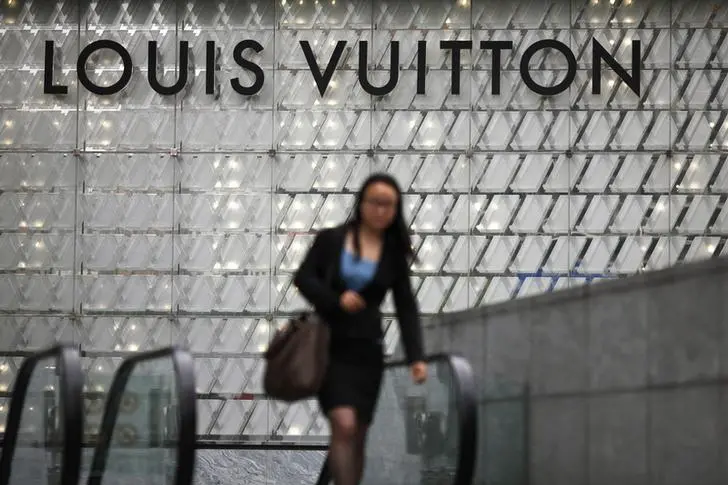PHOTO
(The author is a Reuters Breakingviews columnist. The opinions expressed are her own.)
LONDON - Luxury goods companies are having a wobble, and Xi Jinping’s to blame. The Chinese president wants to rein in the super-rich and redistribute wealth to boost the middle class. Companies like $95 billion Gucci-owner Kering and $362 billion LVMH lost as much as 14% of their value last week on fears their best client is tightening its belt. The worries are excessive.
China will represent some 40% of global luxury demand this year, according to Euromonitor. The world’s most populous nation also offers consumer companies the best shot at growth – Bain consultants reckon China will become the industry’s biggest market in the coming years. That’s why efforts to demonise spending $40,000 on a Birkin bag or $3,000 on a Saint Laurent tuxedo jacket rattled share prices. There’s a precedent too: high-end cognac maker Remy Cointreau, which produces the prized tipple of corrupt officials, tanked on Chinese efforts to curb palm-greasing in 2014.
Take LVMH. The maker of extortionate monogrammed travel trunks lost 11% of its value last week. Even after adjusting for a mini selloff in France’s CAC 40 blue-chip benchmark, that’s an 8% decline. That implies a similarly sized hit to LVMH’s overall top line, or its Asia sales, which account for 19% of its revenue, being almost halved.
Either that’s an overreaction or the stocks were already too pumped up. First, Xi’s drive may be unsuccessful – it wouldn’t be the first time a communist party chief failed to redistribute wealth. And second, spreading wealth may not have an entirely negative consequence. Alongside its outrageously priced baubles, LVMH leaves plenty of crumbs for the hoi polloi. Boosting the number of middle-income families earning 100,000 yuan ($15,200) to 500,000 yuan annually, as defined by the National Bureau of Statistics, could boost the sales of those products.
Furthermore, absurdly wealthy people can only buy so many Ferraris or Bugattis. Meanwhile, those of more modest means will still want lipsticks and monogrammed purses, say, even if suitcases remain out of reach. Similarly, $40 Moet & Chandon champagne could become an affordable treat to more people. Of course, that relies on luxury not becoming a dirty word, a fairly safe bet given its current power as a status symbol.
CONTEXT NEWS
- President Xi Jinping chaired a meeting of the Communist Party’s Central Committee for Financial and Economic Affairs on Aug. 17 where he stressed the importance of “common prosperity”.
- The government in Beijing wants to expand the size of middle-income groups and increase the earnings of the poorest ones, while “reasonably” regulating those of the richest.
- Shares in luxury goods companies like LVMH, Kering and Hermès International were down as much as 14% by Aug. 20 on concerns that a crackdown on conspicuous consumption would reduce their sales.
(The author is a Reuters Breakingviews columnist. The opinions expressed are her own.)
(Editing by Ed Cropley and Oliver Taslic) ((For previous columns by the author, Reuters customers can click on AFANA/ SIGN UP FOR BREAKINGVIEWS EMAIL ALERTS http://bit.ly/BVsubscribe |dasha.afanasieva@thomsonreuters.com; Reuters Messaging: dasha.afanasieva.thomsonreuters.com@reuters.net))





















